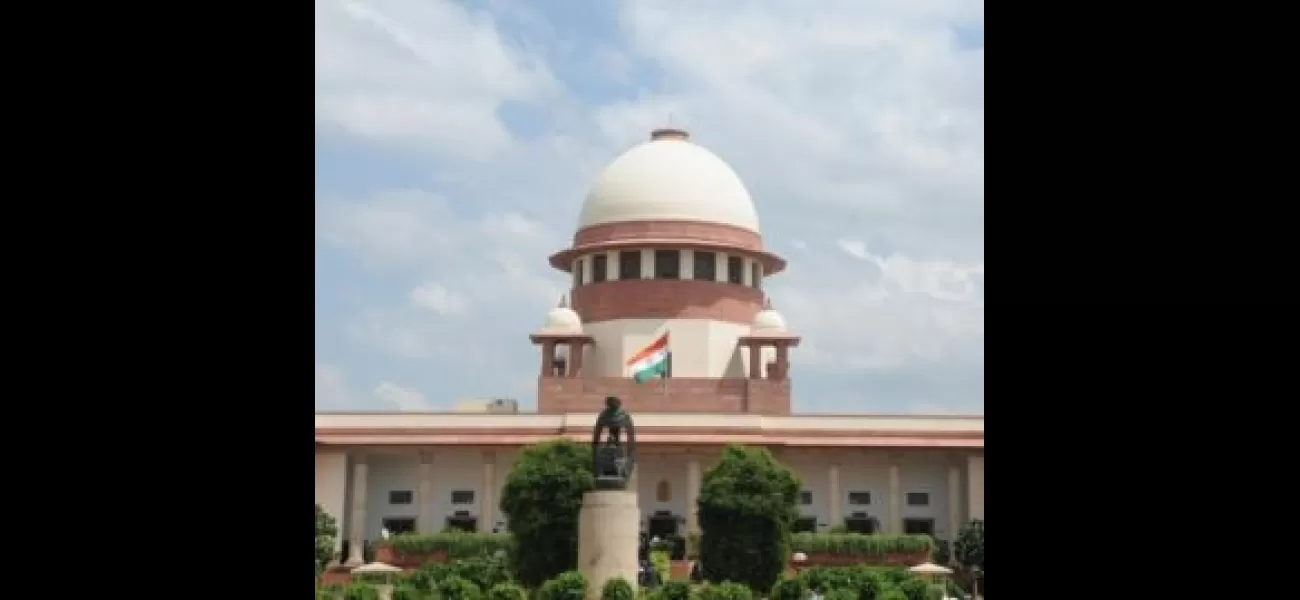SC reminds EVM critics they cannot influence elections or make decisions based on mere suspicion.
SC cannot control elections or issue orders based on doubts about EVMs; reserves judgment on petitions alleging tampering with voting devices.
April 24th 2024.

On Wednesday, the Supreme Court addressed the issue of doubts surrounding the effectiveness of Electronic Voting Machines (EVMs) and the use of Voter Verifiable Paper Audit Trail (VVPAT) during elections. The court reserved its judgement on a number of petitions that challenged the reliability of these polling devices, claiming that they can be manipulated to alter the results.
The bench of Justices Sanjiv Khanna and Dipankar Datta acknowledged the concerns raised by the petitioners and sought answers from the Election Commission (EC) regarding the functioning of EVMs. In response, the senior Deputy Election Commissioner Nitesh Kumar Vyas clarified that the microcontrollers used in EVMs are one-time programmable and cannot be reprogrammed after manufacture. He also stated that the VVPAT system, which allows voters to verify their votes, is an independent verification system and is used in addition to EVMs.
However, advocate Prashant Bhushan, representing one of the petitioners, argued that a private report suggests that the memory used in EVMs can be reprogrammed and manipulated. He emphasized the need to address the doubts surrounding the transparency of EVMs. In response, Justice Khanna reminded Bhushan that the court must rely on the information provided by the EC, which has stated that the program in the memory of an EVM can only be written once.
Justice Datta also raised the question of whether the court can issue directions based on mere suspicion. He stated that the court cannot control the elections or direct the functioning of a constitutional authority like the EC. The bench also recalled its previous orders regarding the use of VVPATs, and remarked that the court cannot issue directions for a return to the use of ballot papers.
The apex court had previously directed the EC to increase the number of EVMs undergoing VVPAT verification from one to five per assembly segment in a parliamentary constituency. However, one of the petitioners has now requested for all votes to be tallied with the VVPAT slips. In response, Justice Datta questioned whether any candidate has ever come forward with evidence of mismatched VVPAT slips.
The bench clarified that the matter was listed for a second time to seek clarification from the EC on certain aspects, and not to debate the effectiveness of EVMs. They also acknowledged that the EC has its own independent system and technical experts, and is not affiliated with any political party.
During the hearing, the EC official, Vyas, explained that the microcontrollers used in EVMs cannot be accessed physically and there are tamper detection features in place to prevent any manipulation. He also stated that EVMs are stored for 45 days after polling, and are sealed and preserved if any election petition is filed.
When the petitioner's counsel requested for the source code of EVMs to be disclosed for transparency, the court rejected the request, stating that it could be misused. The bench reserved its verdict on the matter after a two-day hearing, but listed it again for clarification from the EC.
One of the petitioners, the NGO 'Association for Democratic Reforms', has also challenged the EC's decision to replace the transparent glass on VVPAT machines with an opaque glass, which only allows voters to see their vote for seven seconds. The petitioners have also requested for a return to the use of ballot papers. The seven-phase Lok Sabha polls began on April 19 and will conclude with the announcement of results on June 4.
The bench of Justices Sanjiv Khanna and Dipankar Datta acknowledged the concerns raised by the petitioners and sought answers from the Election Commission (EC) regarding the functioning of EVMs. In response, the senior Deputy Election Commissioner Nitesh Kumar Vyas clarified that the microcontrollers used in EVMs are one-time programmable and cannot be reprogrammed after manufacture. He also stated that the VVPAT system, which allows voters to verify their votes, is an independent verification system and is used in addition to EVMs.
However, advocate Prashant Bhushan, representing one of the petitioners, argued that a private report suggests that the memory used in EVMs can be reprogrammed and manipulated. He emphasized the need to address the doubts surrounding the transparency of EVMs. In response, Justice Khanna reminded Bhushan that the court must rely on the information provided by the EC, which has stated that the program in the memory of an EVM can only be written once.
Justice Datta also raised the question of whether the court can issue directions based on mere suspicion. He stated that the court cannot control the elections or direct the functioning of a constitutional authority like the EC. The bench also recalled its previous orders regarding the use of VVPATs, and remarked that the court cannot issue directions for a return to the use of ballot papers.
The apex court had previously directed the EC to increase the number of EVMs undergoing VVPAT verification from one to five per assembly segment in a parliamentary constituency. However, one of the petitioners has now requested for all votes to be tallied with the VVPAT slips. In response, Justice Datta questioned whether any candidate has ever come forward with evidence of mismatched VVPAT slips.
The bench clarified that the matter was listed for a second time to seek clarification from the EC on certain aspects, and not to debate the effectiveness of EVMs. They also acknowledged that the EC has its own independent system and technical experts, and is not affiliated with any political party.
During the hearing, the EC official, Vyas, explained that the microcontrollers used in EVMs cannot be accessed physically and there are tamper detection features in place to prevent any manipulation. He also stated that EVMs are stored for 45 days after polling, and are sealed and preserved if any election petition is filed.
When the petitioner's counsel requested for the source code of EVMs to be disclosed for transparency, the court rejected the request, stating that it could be misused. The bench reserved its verdict on the matter after a two-day hearing, but listed it again for clarification from the EC.
One of the petitioners, the NGO 'Association for Democratic Reforms', has also challenged the EC's decision to replace the transparent glass on VVPAT machines with an opaque glass, which only allows voters to see their vote for seven seconds. The petitioners have also requested for a return to the use of ballot papers. The seven-phase Lok Sabha polls began on April 19 and will conclude with the announcement of results on June 4.
[This article has been trending online recently and has been generated with AI. Your feed is customized.]
[Generative AI is experimental.]
0
0
Submit Comment





